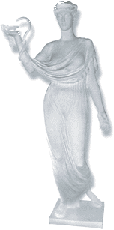

Ministry of Public Health and Social Development of RF
Russian Academy of Medical Sciences
Siberian Branch of Russian Academy of Medical Sciences
Siberian Branch of Russian Academy of Sciences
Medical Polar Fund “Science”
The Northern Forum



|
||

|
International Union for Circumpolar Health Ministry of Public Health and Social Development of RF Russian Academy of Medical Sciences Siberian Branch of Russian Academy of Medical Sciences Siberian Branch of Russian Academy of Sciences Medical Polar Fund “Science” The Northern Forum |
 
|
 |
Public health
The rate of disability of Canada’s Inuit people is more than double that of the national average. Despite this high prevalence of disability, Canada’s circumpolar people have historically experienced significantly poor access to medical rehabilitation services. In 2000, the University of Manitoba and the Department of Health and Social Services of Nunavut jointly embarked upon the development of a community based medical rehabilitation program in the Kivalliq Region of Canada’s central Arctic. A community needs assessment of the Region was carried out to guide the implementation of physiotherapy, occupational therapy and speech language pathology services. As a result, there are 2.2 EFT physiotherapists, 1.2 EFT occupational therapists, and 1.2 EFT speech language pathologists providing rehabilitation services in the region. The total population served is approximately 9,000 people, the significant majority of whom self-report as Inuit, widely dispersed in eight hamlets. In addition to providing rehabilitation services to the region, a sustainable community therapy assistant program has been pursued, guided by a feasibility study carried out in 2002. Program concepts are consistent with a modified World Health Organization Community Based Rehabilitation approach and in keeping with the expressed desire of the Inuit for community development as articulated in the Nunavut government’s Bathurst Mandate. A seven year retrospective of the challenges and successes of this medical rehabilitation program including the developmental phases and implementation recommendations of the community therapy assistant program will be presented.
Note. Abstracts are published in author's edition
|
Mail to webmaster
Main page |
© 1996-2005, Siberian Branch of Russian Academy of Sciences, Novosibirsk
Last update: 06-Jul-2012 (11:52:05)